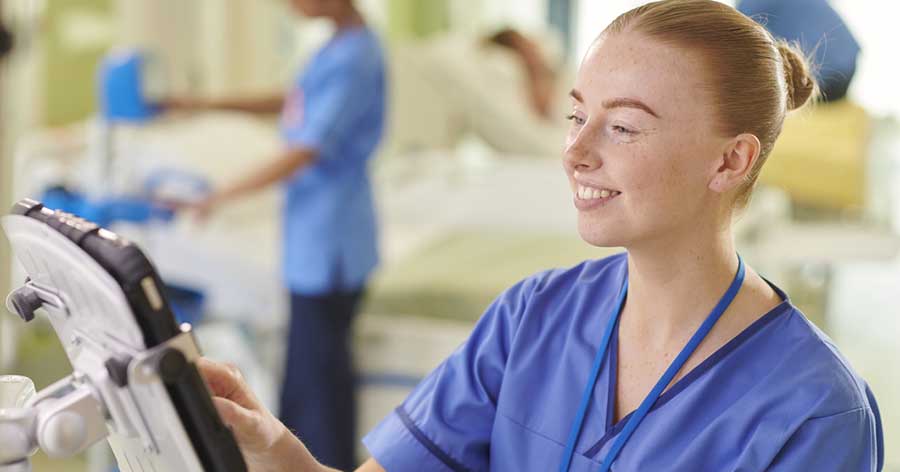The provision of care to an ever-growing number of people with diabetes in the UK (and also Europe and the rest of the world) is changing. These changes principally involve who is providing what, where they provide it, and when. The main drivers include the following.
- More patients than any one system, be it primary or secondary care-based, is able to offer a quality service to.
- The desire to devolve care for many from secondary to primary care for patient convenience, efficient utilisation of resources and decentralisation.
The latter has to be underpinned by increasing expertise in primary care and an enthusiasm by healthcare professionals working there to take on care with more direct patient contact, not just to fulfil the new General Medical Services contract. Such changes in delivery of care will, and have already begun to, affect the traditional ways of working in diabetes care built up over the past 30 years by various professional groups delivering it.
These changes will also affect existing professional relationships between, and within, members of diabetes care teams. (Indeed, it appears that another powerful driver for change is the apparent desire by some bodies to change working and professional relationships in the delivery of diabetes care for whatever reason.) An obvious area is the changing nurse–doctor relationship, their positions in the care team hierarchy and the role of the consultant physician in the delivery of care. In considering this, it may be helpful to review the recent history of the evolution of these professional roles.
A brief history of diabetes care
Up until the 1960s and 1970s diabetes was largely an academic subject practised by consultant physicians and professors of medicine in large city and university hospitals. One of the great strengths of a truly national health service has been the decentralisation and evening up of the quality of specialist care, including diabetes-related care. Thus, over the last 30 years, diabetes care teams, often working from diabetes centres, have sprouted in all the 250 or so district general hospitals, aiming for one physician with a special interest in diabetes per 100 000 of the local population.
From the 1970s, enlightened physicians, appreciating the importance of diabetes education in the delivery of care, realised the very important role that nurse colleagues could and should have in care and education. Quickly, famous ‘pairs’ of nurses and physicians appeared around the country, and the role of the diabetes specialist nurse (DSN) was born.
Physicians encouraged the emancipation of ‘their’ nurse colleagues, supporting them professionally and, indirectly, financially to make a full contribution to the national diabetes scene. In some cases a centre may have become as well, or better, known for its nurse as its doctor. On an individual level the doctor may have been seen as the head of service, team leader, and resource gatherer, while the nurse was the frontline provider of care – particularly to complex patient groups – and the acceptable face of the service.
Current diabetes care
Where are we now, and where may we get to as more evolution of care delivery goes on? The role model for frontline delivery of care is becoming the nurse. In secondary care she, and it usually is ‘she’, is the DSN or nurse consultant (an interesting term). They have their own patient load, and, together with other healthcare professionals, are seen as the providers of diabetes education. Much of primary care diabetes will probably be delivered by practice nurses, and many practices will not have a named lead general practitioner for diabetes, let alone a GP with specialist interest, and hopefully training, in diabetes. The consultant physician may still be holding a traditional clinic with annual review of patients, and have willingly washed his or her hands of diabetes education, particularly of the complex patient, and certainly of group education.
Changing roles
As a result of these changing roles there is a natural feeling that the professional relationships, and order, should change. Physicians are on the retreat into a world where diabetes will again become an academic subject. Nurses are in the ascendant. There is a feeling there is no need for doctors in the delivery of care and education, and therefore that nurses should assume the position at the head of the hierarchy. Those who may wish to see consultants as an endangered species will be heartened by the proposed term ‘accredited specialist’ for someone who will obtain his or her certificate of training as a doctor in diabetes care after 2010. Any service led and staffed by nurses must appeal to any government mindful of the cost of health care.
Conclusion
Is it all in danger of going too far, or is there a way back? There is a lot of good bath water to throw out with this particular baby. Not all doctors are bad communicators, and those in training wish to be involved in direct complex patient care. Not all nurses will be born educators. All professionals directly delivering patient care should appreciate, and be trained in, education methods. Secondary care teams should be planning to provide multidisciplinary-led education to patients and professional colleagues. We must revisit the principles of good teamworking, and appreciate again its success in providing good care and sound education.
The recent Confidential Enquiry into Maternal And Child Health (2005) in diabetes has emphasised the importance of a team approach to safe care, and successful outcomes for mother and baby.
In everyday care the cohesive nurse, doctor or nurse–doctor, if you will, team is often more effective than either professional alone in establishing and meeting the patient’s needs. It is not just a case of one can prescribe and the other cannot, or one can demonstrate a technical device and the other cannot. It goes beyond these superficialities to the essence of effective therapeutic interactions to empower and enable people with diabetes in self-management skills and decisions.
There is plenty of work for everyone in diabetes care. Remember the patient’s perspective. Good diabetes care depends on forging an effective therapeutic relationship with an empathic, knowledgeable, supportive and enthusiastic caring professional. He may still be grey haired, wearing reading glasses, and sit behind a desk; or she may be facilitating a workshop for newly diagnosed type 2 diabetes patients. The reality is that various methods of delivery of care and education, in various settings, will continue for some years. The workforce delivering it all must be trained and committed. They must know their roles, old, new and evolving, and acknowledge the contributions we can all make, with mutual respect for one another, to the care of people with diabetes.





Developments that will impact your practice.
29 Aug 2025